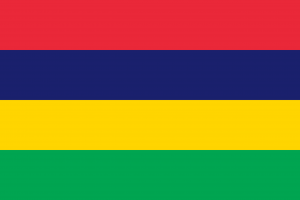Language/Morisyen/Grammar/How-to-Use-Have
Hi Morisyen learners! 😊
In this lesson, we will learn how to use "have" in Morisyen grammar. "Have" is one of the most commonly used verbs in English and Morisyen. Therefore, it's crucial to master its usage. Let's start!
Take a moment to explore these relevant pages as you conclude this lesson: Plurals & Conditional Mood.
What is "Have"?[edit | edit source]
"Have" is an auxiliary verb that is used in many different contexts. It can be used as a main verb, a helping verb, a modal verb or a phrasal verb. In Morisyen, "have" is translated as "avek".
As a Main Verb[edit | edit source]
As a main verb, "have" is used to indicate ownership or possession.
Let's take a look at some examples:
| Morisyen | Pronunciation | English | |||||||||||||||
|---|---|---|---|---|---|---|---|---|---|---|---|---|---|---|---|---|---|
| mo ene loto | mo ene loto | I have a car | to ene laport | to ene laport | you have a door | li ene kat | li ene kat | he has a cat | nou ene bannan | noo ene bannan | we have a banana | zot ene fleur | zot ene fleur | you all have a flower | zot ene zwazo | zot ene zwazo | they have a bird |
As a Helping Verb[edit | edit source]
As a helping verb, "have" is used to form the present perfect tense. The present perfect is used to describe an action that started in the past but is still relevant in the present.
For example:
| Morisyen | Pronunciation | English | |||||||||||||||
|---|---|---|---|---|---|---|---|---|---|---|---|---|---|---|---|---|---|
| mo finn manze | mo fin man-zeh | I have eaten | to finn dormi | to fin dor-me | you have slept | li finn ale | li fin a-lay | he has gone | nou finn arrive | noo fin a-reev | we have arrived | zot finn travay | zot fin tra-vay | you all have worked | zot finn aprann | zot fin a-pran | they have learned |
As a Modal Verb[edit | edit source]
As a modal verb, "have" is used to show obligation or necessity.
For example:
| Morisyen | Pronunciation | English | |||||||||||||||
|---|---|---|---|---|---|---|---|---|---|---|---|---|---|---|---|---|---|
| mo bizin al | mo bizin al | I have to go | to bizin koz | to bizin ko | you have to talk | li bizin aprann | li bizin a-pran | he has to learn | nou bizin ale | noo bizin al | we have to go | zot bizin trouv | zot bizin trouv | you all have to find | zot bizin res dan kas | zot bizin ris dan kas | they have to stay in the house |
As a Phrasal Verb[edit | edit source]
As a phrasal verb, "have" can be used in many different contexts. Here are some commonly used examples:
- "Have on" - to wear something
Examples:
| Morisyen | Pronunciation | English | |||
|---|---|---|---|---|---|
| to ena T-shirt and to pantalon | to ena T-shirt and to pantalon | you have on a T-shirt and pants | li ena ena kreol roze | li ena ena kreyol ro-ze | she has on a pink dress |
- "Have over" - to invite someone to your house
Examples:
| Morisyen | Pronunciation | English | |||
|---|---|---|---|---|---|
| mo finn invite mo ban frer pou vinn | mo fin invite mo ban frer pou vinn | I have invited my brothers over | to bizin invite to ban zanmi pou vinn | to bizin invite to ban zan-mee pou vinn | you have to invite your friends over |
- "Have up" - to cause someone to rise from a seated position
Examples:
| Morisyen | Pronunciation | English | |||
|---|---|---|---|---|---|
| mo finn dire li ale | mo finn di-re li a-lay | I told her to have up and leave | to bizin dir zot ale | to bizin dir zot a-lay | you have to tell them to have up and leave |
Dialogue[edit | edit source]
- Person 1: To bizin ene stylo pou travay la. (You need a pen to work there.)
- Person 2: Mo ene stylo! (I have a pen!)
- Person 1: To bizin ale lopital aster. (You need to go to the hospital now.)
- Person 2: Mo bizin koz ar mo dokter avan. (I have to talk to my doctor first.)
- Person 1: Zot finn fini dekor la karo bwar? (Did you all finish decorating the karaoke room?)
- Person 2: Oui, zot finn fini. Mo espere zot bizin ena bon lapsye. (Yes, they finished. I hope they have a good party.)
Conclusion[edit | edit source]
In conclusion, "have" is an essential verb in the English and Morisyen languages. It has many different uses and can be used in various contexts. In order to master Morisyen grammar, it's essential to understand the different ways "have" can be used.
To improve your Morisyen Grammar, you can also use the Polyglot Club website. Find native speakers and ask them any questions!
➡ If you have any questions, please ask them in the comments section below.
➡ Feel free to edit this wiki page if you think it can be improved. 😎
Congratulations on finishing this lesson! Explore these related pages to keep learning: How to Use Be & Future Tense.
Other Lessons[edit | edit source]

